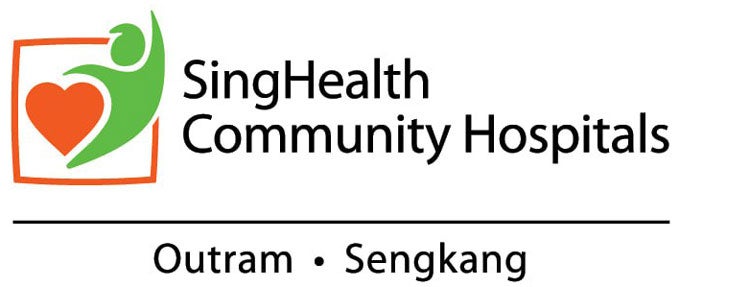SingHealth Community Hospitals will NEVER ask you to transfer money over a call. If in doubt, call the 24/7 ScamShield helpline at 1799, or visit the ScamShield website at www.scamshield.gov.sg.
A Spark of Innovation

Allied Health Professionals form an integral part of the care team at SCH. In conjunction with Allied Health Day 2022, we speak to three of our SCH Allied Health Professionals (AHPs) who give us a glimpse into what being an AHP means to them.
OCH Senior Occupational Therapist, Ooi Lee Mei, shares what keeps her motivated at work and how sometimes, a little Innovation is necessary so that we can give our patients the best care.
Wearing Many Hats
The job scope of an occupational therapist is one with many bullet points. At a community hospital, the occupational therapy team works closely with elderly patients in all sorts of ways to educate them on how to best take care of themselves after they are discharged.
Lee Mei impressed on the importance of this, "As most of our patients are elderly, a simple fall can have devastating consequences. We try to teach them some necessary precautions so that they can be safe at home by themselves when performingdaily activities such as going to the toilet, keeping their balance while putting on their clothes, cooking safely in the kitchen and doing simple cleaning chores."
Other than that, an occupational therapist, while working with a multidisciplinary team on a discharge plan for patients, also helps to determine if patients require any equipment such as a wheelchair and shower chair. "If we recommend a wheelchair or shower chair for our patients, we will then teach the patient or caregiver how to use the equipment properly so that they are safe when using it. Improper usage of the equipment can cause more harm than good," she said.
Making it their own
Pictureka is a board game that has many different objects printed on it. The goal of the game is to find the correct objects on the boards and collect as many points as possible. Playing the game with patients not only allow Lee Mei and her OT colleagues to keep them engaged, but also stimulate their cognitive thinking, retain their current communication functions and improve their mental health. To make it more culturally suited for our elderly patients, the team decided to make their own version of the game. Instead of random objects, the team used photos of vegetables, fruits, and local food – all things close to patients' hearts.
Lee Mei added, "Although the game sounds simple, it can be used in many different ways and with modifications to suit each patient's cognitive level. For example, this can be a matching game with or without the use of a timer, a naming objects game, or even as a conversation starter for reminiscence therapy!"
The team also uses it for reminiscence therapy, "Through this activity, we hope to be able to provide opportunities for them to remember and talk about events, places and their favorite food. Talking about happy memories will hopefully help with their cognitive health, provide a feeling of joy, and help to reduce boredom, stress and depression. In some cases, if the goal of the patient is to cook the dish, we could even arrange for a mini cooking session right here in our kitchen!"
A Guiding Hand
Despite the many challenges that the job brings, Lee Mei finds it easy to keep positive, "I could not have asked for a more interesting career! One of the highlights of my job is seeing my patients improve gradually and being able to be discharged and go back home. It is also rewarding to be able to guide my juniors and therapy assistants along and see them get better at managing more complicated conditions.
"Another plus point of being an occupational therapist is that the skills and knowledge that we have can be very useful outside of our jobs. We are able to better advise our family and friends about suitable equipment for their grandparents, understand our parent's aging process better, and even know how to perform CPR!"
Keep Healthy With
@2025 SingHealth Group. All Rights Reserved.
















